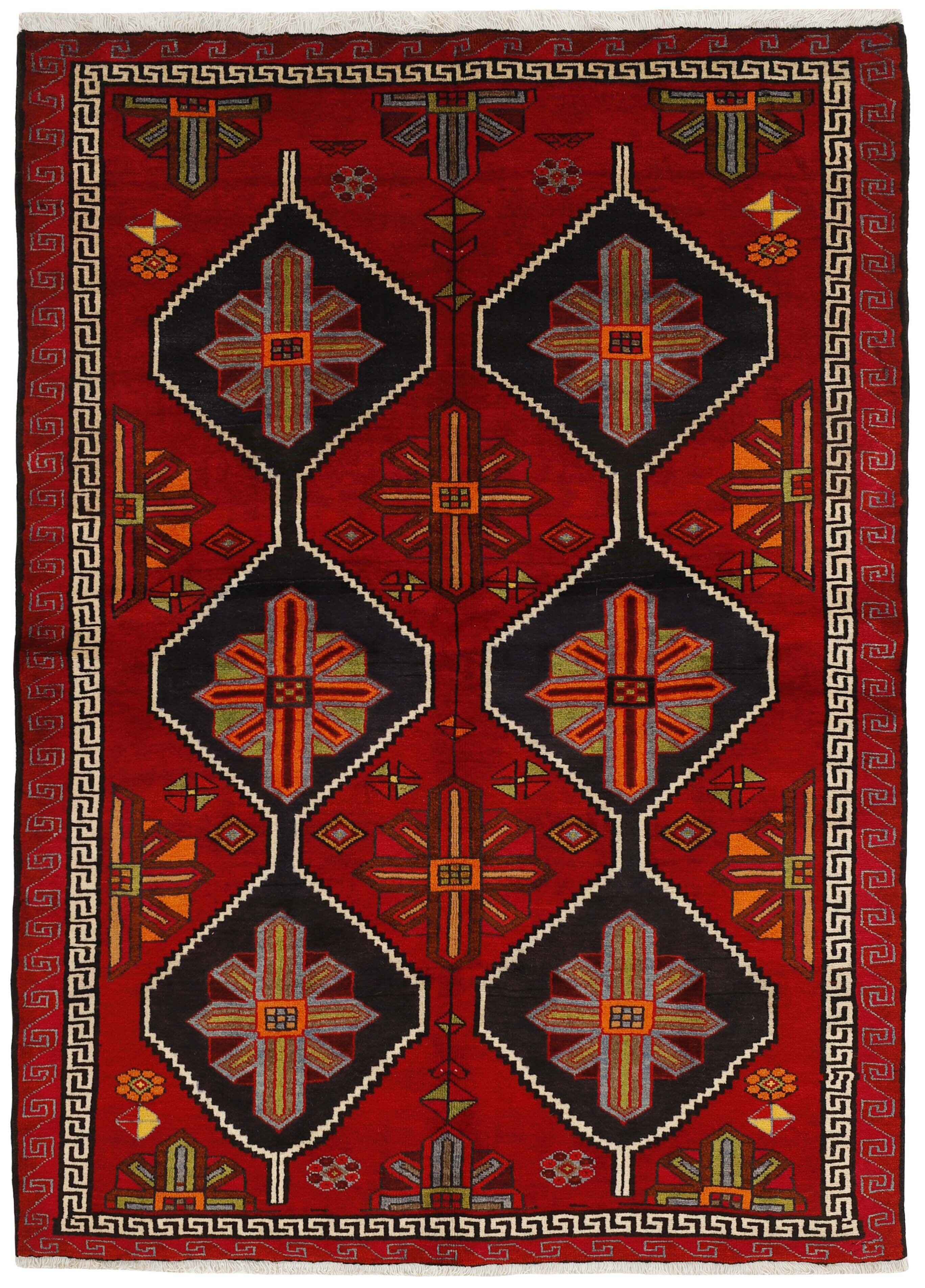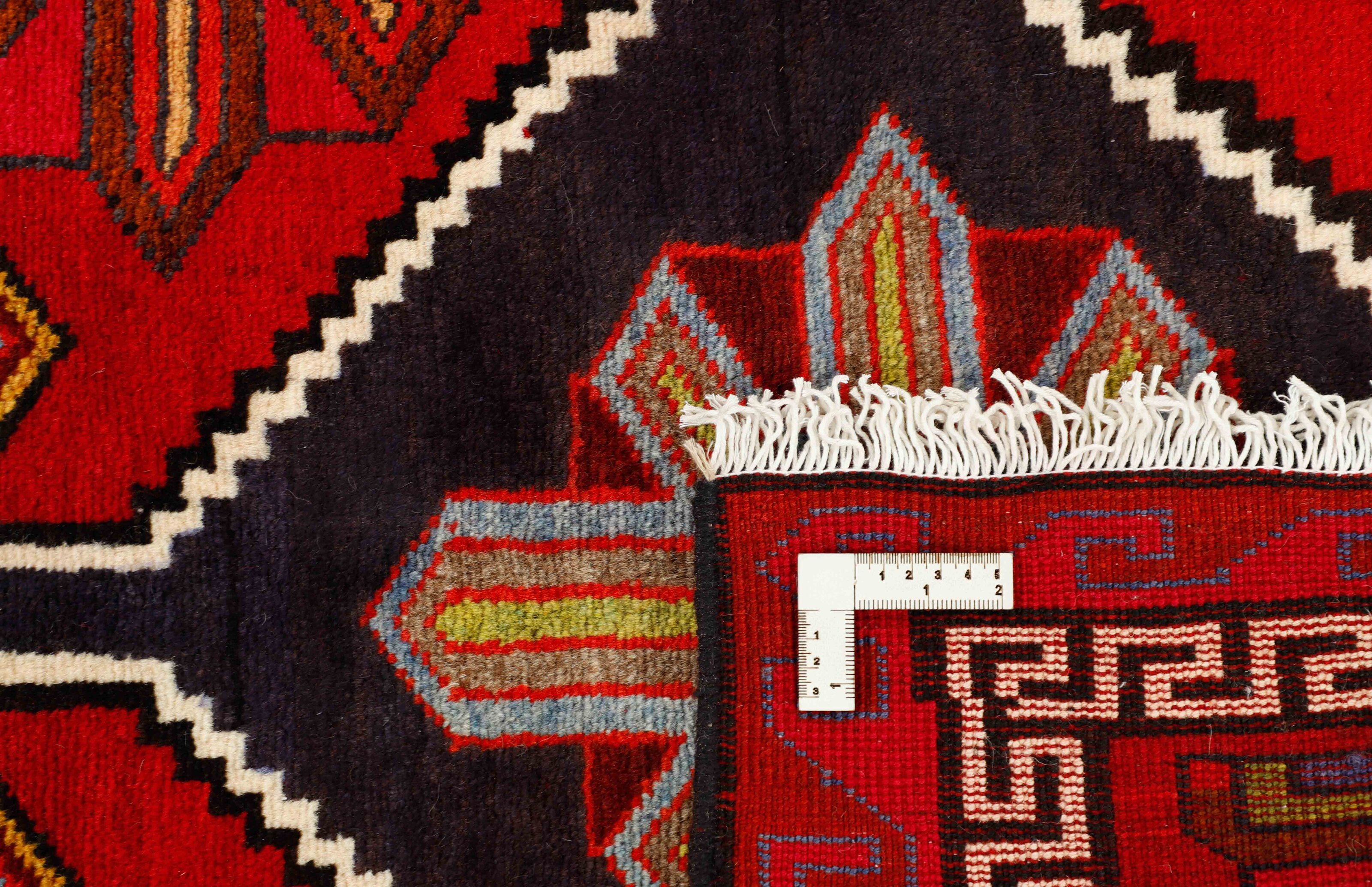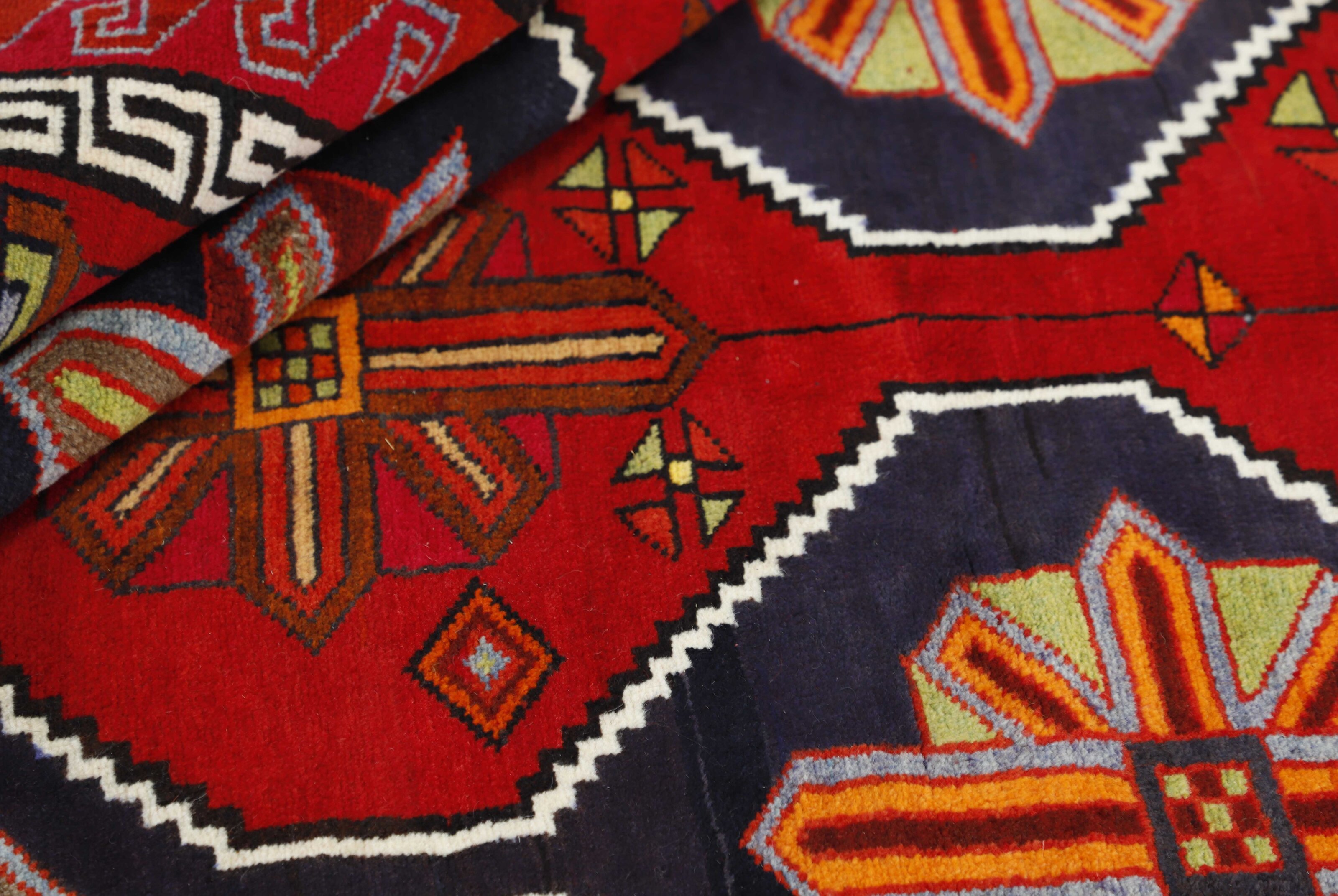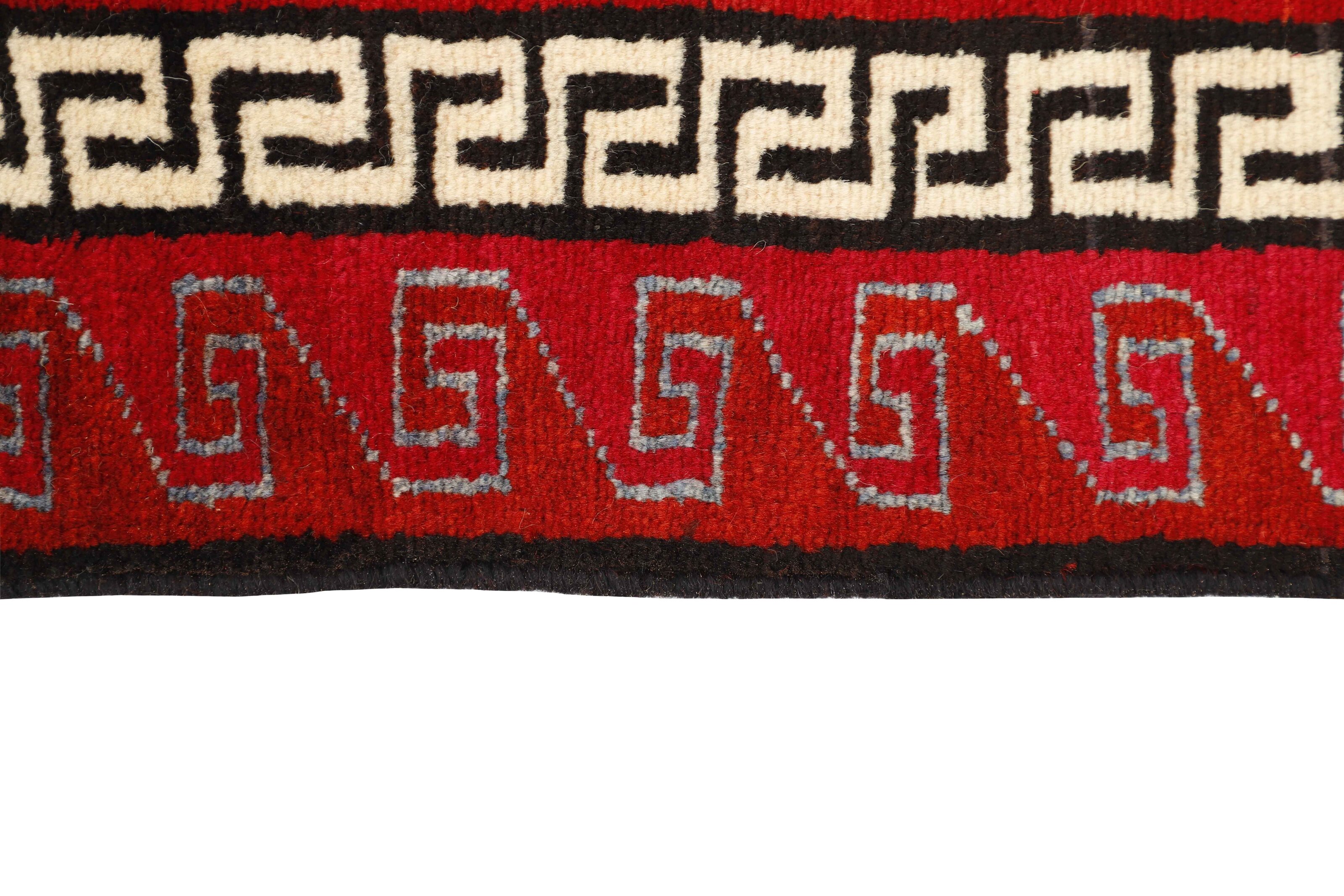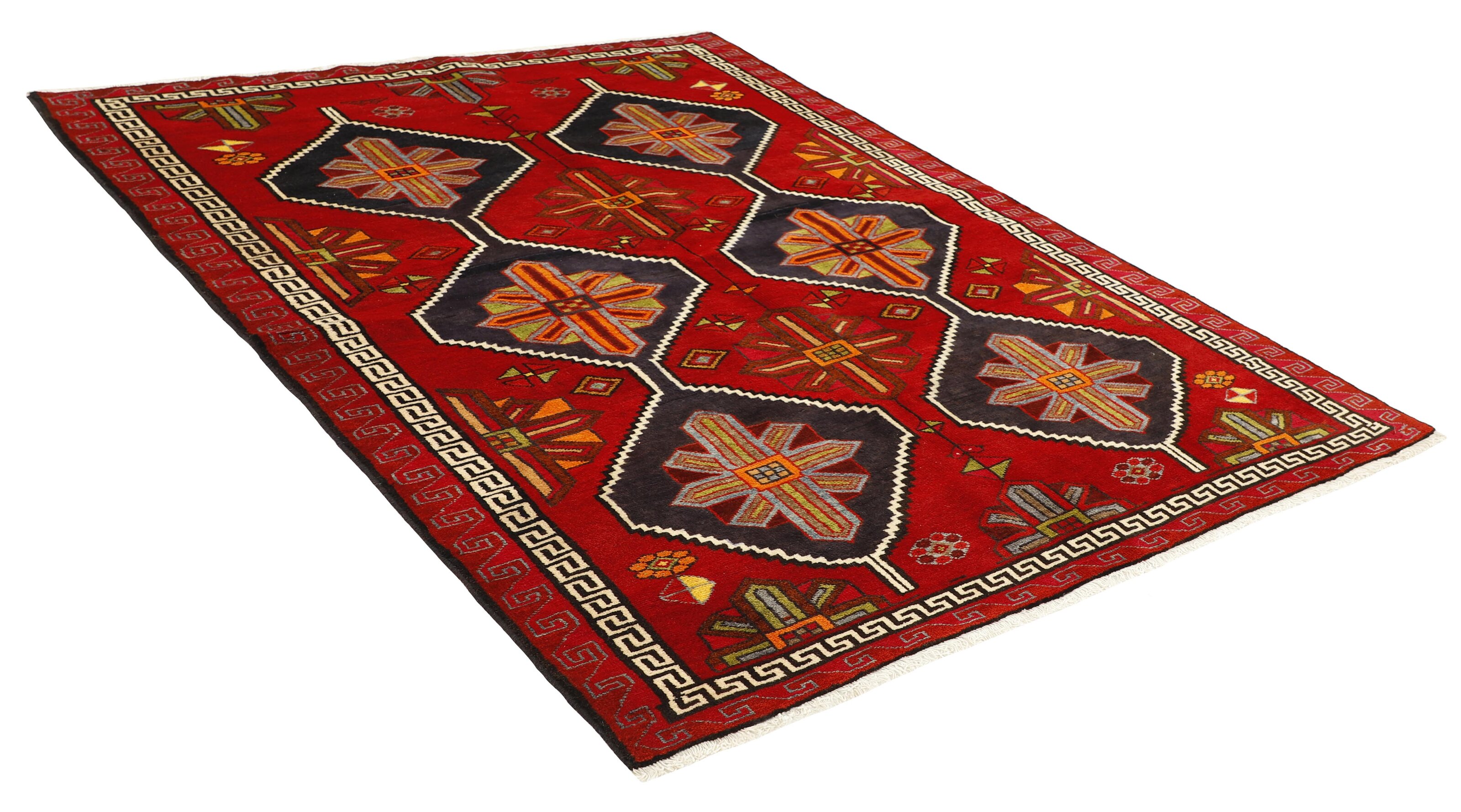Lori
Lori
LoriItem no.: 1514262 Size: 159 cm x 225 cmThe Lori Tribe is one of the most important nomadic tribes, and inhabit the southern and western parts of the country. Several of the Lori areas used to belong to the Kashghai. As opposed to the Kashghai, who speak Turkish. Pressure from different sides in this century has forced many Loris to give up their nomadic lives and settle in villages. Two main types of Lori rugs are marketed. The nomadic rugs, produced in the southern area, are called “normal Lori Behbehan”. They resemble the Kashghai rugs and are made entirely of wool but they have a different series of motifs, and a generous use of clear, contrasted colours; a strong red is particularly prevalent. The other type of Lori rugs is marketed in the city of Khorramabad. These are squarer and colours are used more cautiously. The patterns show a great deal of variation, with a hole pattern being dominant. The fringes are often beautifully weaved. The city and the district of Hamadan is an important centre for the rug trade. Hamadan is a major city with hundreds of thousands of people. Like Ekbatan, it was a main city of the Achemenian kings. It has an indigenous Jewish population and numerous monuments, of which the most important are the tombs of Esther and Mordicai (central to Jewish pilgrims), and the tomb at Avicenna. Hamadan is a provincial capitol. Two types of rugs are knotted. One is the so-called “city rug”, also known as the Shahrbaff. The production is modern and largely state controlled. The village production, however, is much more important; Hamadan is a market city for many rug producing villages that each has its own pattern. Most prominent are Borchalu, Tuserkman, Memraban, Khamseh, Begardeh, Enjilas, Hosseinabad, and Zandjan. There is a wide range of patterns but the quality is very consistent. The colours are strong, and often plant colours. The patterns are daring, although random, and Hosseinabad and Enjilas in particular are known for through going patterns. The rugs are usually not much bigger than 3 by 2 metres.
Product specification
- Origin:Persia
- Condition:In very good condition
- Knot density:50-150.000 knots per sqm.
- Pile:Wool
- Age:0-20 years (not used)
- Warp:Wool
- Manufacturing:Genuine hand knotted rug
- Format:Rectangular
- Square meter:3.58
- Size:159 cm x 225 cm

